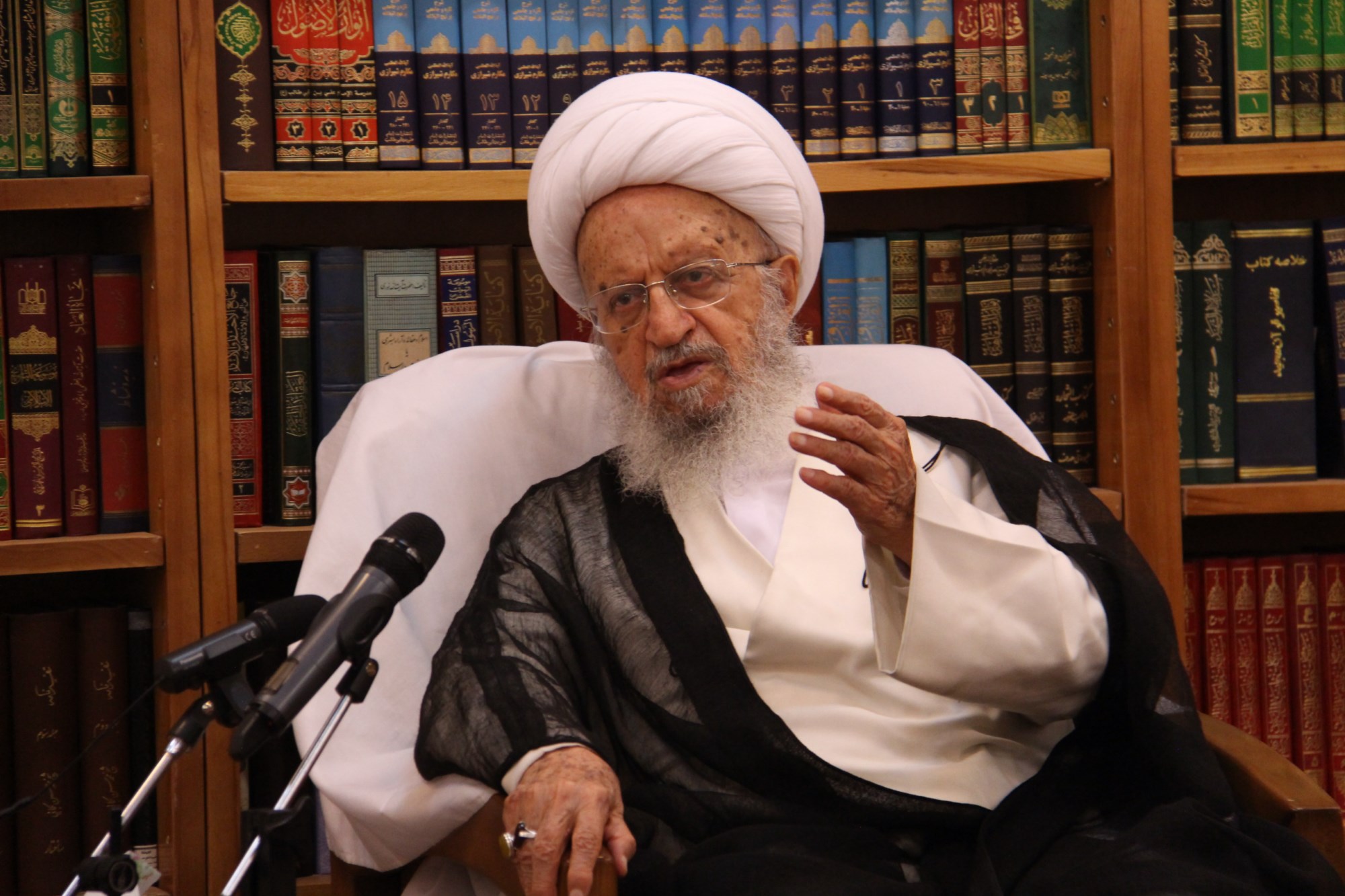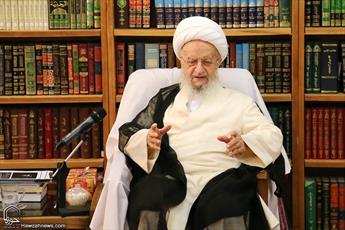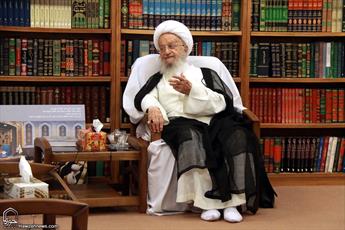Hawzah News Agency (Qom, Iran) – Grand Ayatollah Nasser Makarem Shirazi, a Shia source of emulation, received the secretariat members of the international conference called ‘Legal Unity of the Islamic World’ in Qom on Monday, May 1.
The top cleric first congratulated the guests on the auspicious birth anniversaries of Shia Imams in Sha’ban month and then went on to elaborate on the history of Islamic sciences in the East and the West. The grand Ayatollah asserted that, centuries ago Islamic sciences used to transfer from East to the West and Europe, but establishment of modern-day universities and academic settings began in the West and then spread to the Eastern countries; following such movement, Western culture was brought to the East and it affected the Muslim countries.
“As a result of such wave, the law institutions and universities in the Muslim world were affected by Western methods and their culture. Today, we can see the consequences of such cultural invasion, some of which have been accounted for, but still more actions need to be done in order to resolve this issue.”
The Shia source of emulation further stressed defining clear and distinct boundaries between Islamic law and the Western law in order to separate these two. “Western Judicial system is based on a materialistic worldly view whereas the Islamic law is founded on revealed sciences; therefore, we cannot follow their legal system in all aspects and must adhere to our Islamic sharia.”
Grand Ayatollah Makarem Shirazi also referred to discrepancies that exist among different Islamic sects in terms of Sharia law and added, “There are certain commonalities as well as discrepancies among Muslim sects when it comes to Islamic Sharia law, our job is to make effort in order to approximate our legal procedures, the same way Muslim sects are seeking proximity in their religious doctrine.”
End.





Your Comment